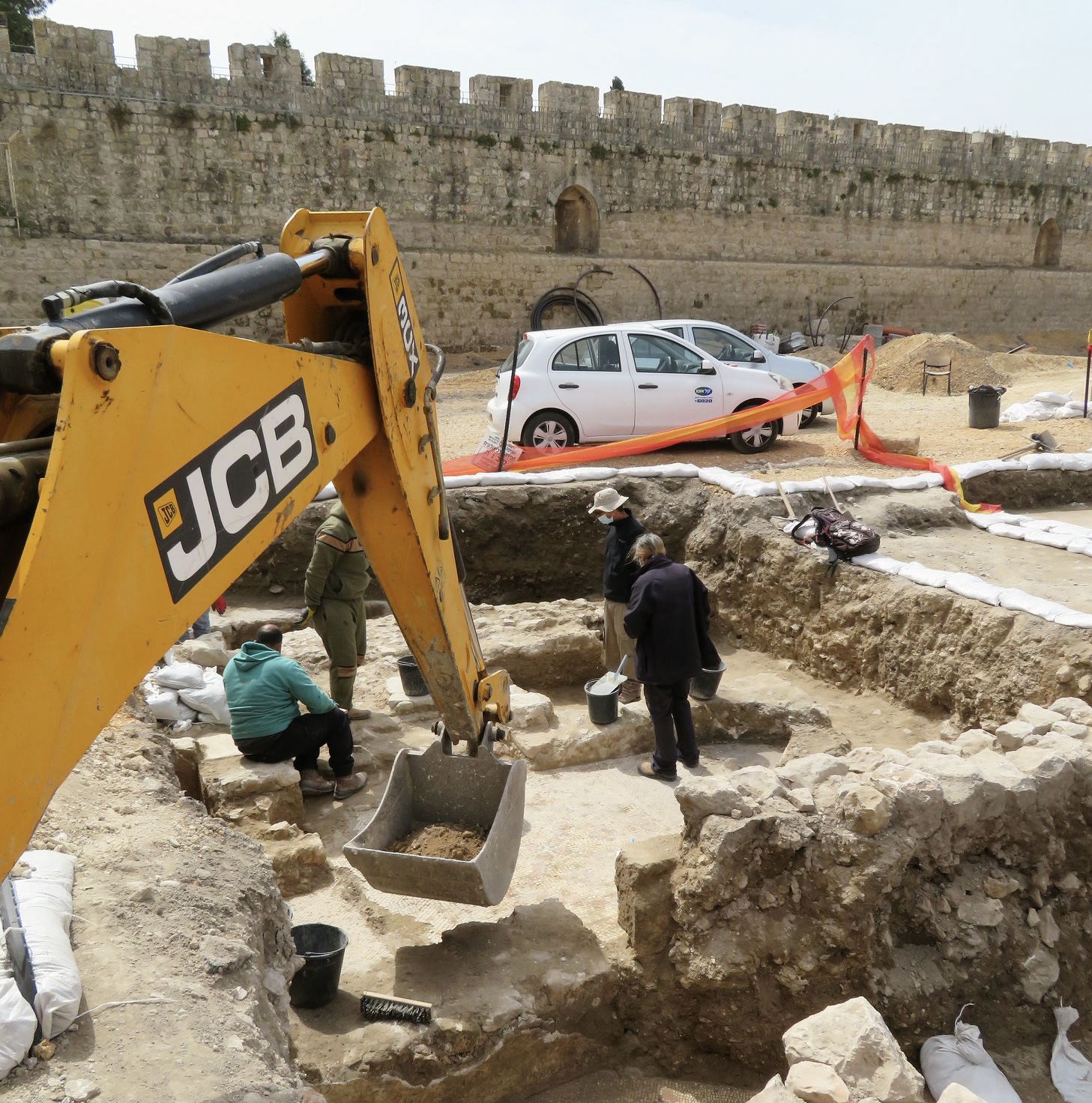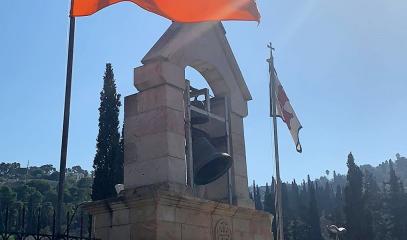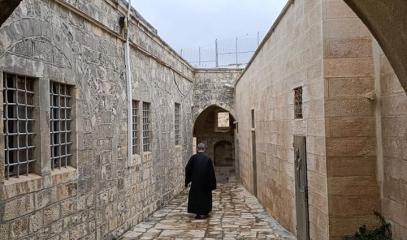Jerusalem: Spit upon, conferences banned, land sold off. Shadows over the future of Christians
Under "pressure" from the municipality, organizers had to move a conference originally planned at the Tower of David Museum. The initiative was focused on abuses and biased attacks by the Jewish world on Christians. Armenian Church in storm over use of land granted to Jewish-Australian developer. The faithful say land aquired through "sweat and blood" was "sold off".
Jerusalem (AsiaNews) - A conference focusing on attacks against Christians in the Holy Land, scheduled to take place yesterday at the Tower of David Museum, was held at a different location than originally planned as a result of "pressure" from top municipal officials.
Local sources point the finger at some close associates of Mayor Moshe Leon, who allegedly threatened to "kick out" facility director Eilat Lieber if the meeting was not canceled. Allegations denied by officials, for whom "none of this ever happened" even though the promoters had to reschedule the event elsewhere.
The conference, titled "Why Do (Some) Jews Spit on Gentiles," had been sponsored and organized by the Center for the Study of Relations Between Jews, Christians and Muslims at the Open University of Israel.
The discussion was focusing on the escalation of attacks against Christians in the holy city in recent months, which had raised more than one concern -- and condemnation -- from the local church leadership. In the crosshairs were priests, nuns, worshippers, places of worship and pilgrims subjected to spitting, blasphemy, physical and moral violence, and acts of vandalism by ultra-Orthodox Jews and nationalists.
Despite having received an invitation, both officials from the municipality and members of the Israeli Foreign Ministry did not want to attend a meeting frontally attacked in a letter even by Jerusalem's Chief Rabbi Rabbi Shlomo Amar.
The religious leader speaks of the event being promoted by those "seeking to confuse and convert innocent Jews" and accuses the museum of operating on Shabbat, which is why it should be boycotted. Among the first to raise the attack is Vice Mayor Arieh King, who openly speaks of a conference with "anti-Semitic" tones. It should be pointed out here, however, that Rabbi Amar was the most influential Jewish leader to explicitly condemn the anti-Christian violence of recent months.
The organization's retort was immediate through the mouth of Yaska Harani, who said that the meeting was intended "to build change, not to offend or attack ultra-Orthodox society. The goal is really to rid the city of spitting."
The controversy that arose around the conference is just the latest chapter in a long series of incidents that have raised concerns about the current presence and future of Christians in the Holy Land, who often face external enemies and internal pitfalls within the community itself.
This is proven by events involving the Armenians, at the center of a dispute over a sale of property and land in the Old City in Jerusalem that threatens to create a huge rift. At the origin of the clash "the 99-year lease" (a de facto expropriation) of real estate to an Australian Jewish businessman with an opaque business empire, who likes to move from - and stay - behind the scenes.
This bloody clash led the priest involved in the sale to flee to the United States and the Armenian primate himself to barricade himself inside the patriarchate, while more than one faithful demanded his resignation and Jordan and Palestine effectively "froze" his authority.
The affair erupted in May, but the contract was signed in great secrecy in July 2021 and provides for the lease for nearly a century of the land called "Cow Garden" (Goveroun Bardez).
The "traitor" priest who brokered and signed the deed is Baret Yeretzian, administrator of real estate for the Armenian Patriarchate of Jerusalem, now in "exile" in Southern California. With him maneuvered Armenian Orthodox Patriarch Nourhan Manougian, Archbishop Sevan Gharibian and businessman Daniel Rubenstein, who plans to build a luxury hotel in the area.
Located near the Armenian Quarter in a strategic area of the holy city, the Cow Garden has been operated since May 2021 by the municipality as a parking lot for those who come to pray at the Wailing Wall.
The contract dates back to 2020 and is valid for a 10-year period, but its use by Jews has provoked the ire of Armenians, who have been fighting since 2012 to regain full use of the area where, archaeological excavations have uncovered mosaics from a Byzantine church.
In addition, the agreement - criticized by Palestinians who speak of "selling off" land in the holy city to the Israelis - would be invalid because it lacks approval by vote of the Armenian Synod (8 clergy) and the green light from the Armenian Patriarchate's St. James Fraternity.
The contract would then include four Armenian houses, the famous Boulghourji restaurant, businesses and Tourianashen buildings on Jaffa Street outside the Old City.
This tangled and thorny affair threatens to fuel tension in the Holy Land and on which, at least for the moment, the protagonists are choosing the path of silence. Indeed, no comment comes from the Jewish-Australian businessman, now based in London where his business is based.
"I do not give interviews," Rubenstein told the Associated Press (Ap). I am a private citizen." Similar stance from the Israeli Foreign Ministry, of the patriarch locked up in the palace, and tight-lipped mouths also among the top executives of One&Only, the Dubai, United Arab Emirates (Eau)-based hotel company that is planned to manage the luxury hotel once construction is completed.
This is where the "Abrahamic Accords" and the common - and increasingly close - interests between the Jewish state and part of the Gulf Arab countries come into play.
What is certain at the moment is only the bitterness and concern of the Armenian community whose neighborhood occupies about 14 percent of the holy city. "Our land," says 26-year-old Setrag Balian, an Armenian from Jerusalem, "was bought inch by inch, at the price of our blood and sweat. With a signature, they sold them out."
05/02/2022 09:48
26/07/2024 12:31
08/07/2024 13:57









.png)










